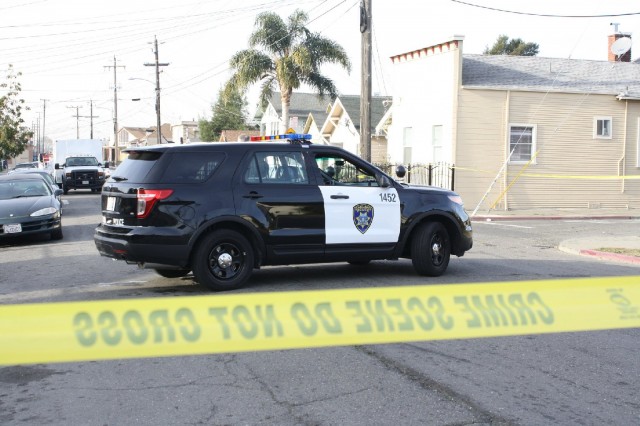Government agencies may also withhold records relating to personnel files of an officer under a separate exception in California's public records law and the 2006 state Supreme Court ruling in Copley Press, Inc. v. Superior Court, which expanded the personnel file protections for police officers.
"I think it’s an opinion that really narrows the exceptions to the public records act, including exceptions built into the public records act and Copley Press," said David Greene, a member of the Northern California Society of Professional Journalists' Freedom of Information Committee.
Greene said today's ruling goes farther than just compelling police departments to release the names of officers involved in shootings — it severs incident reports and other records generated by police departments that have been widely claimed to be protected by personnel or evidence exceptions to the public records act.
From the ruling:
[m]any records routinely maintained by law enforcement agencies are not personnel records. For example, the information contained in the initial incident reports of an on-duty shooting are typically not personnel records as that term is defined in Penal Code section 832.8. It may be true that such shootings are routinely investigated by the employing agency, resulting eventually in some sort of officer appraisal or discipline. But only the records generated in connection with that appraisal or discipline would come within the statutory definition of personnel records ... We do not read the phrase "records relating to . . . [¶] . . . [¶] . . . [e]mployee . . . appraisal[] or discipline" (ibid.) so broadly as to include every record that might be considered for purposes of an officer‘s appraisal or discipline, for such a broad reading of the statute would sweep virtually all law enforcement records into the protected category of "personnel records."
The ruling maintains officers' names may still sometimes be withheld, “if it is essential to protect an officer’s anonymity for safety reasons or for reason peculiar to the officer’s duties – as, for example, in the case of an undercover officer – then the public interest in disclosure of the officer’s name may need to give way.”
The Long Beach Police Officers Association argued that police officers sometimes receive threats after these shootings, but that wasn't specific enough, according to the ruling. “That determination, however, would need to be based on a particularized showing, which was not made here.”
Michael Rains is an attorney who specializes in defending police officers in disciplinary, criminal and civil cases.
"Make no mistake about it, I think this decision does leave open this argument that where there is some credible threat to the officer's safety, the name would not or should not be disclosed," he said. "We take that very seriously."
Rains didn't see anything in the ruling that would compel police departments to release officers' names, incident reports or any other information about a shooting within a certain time frame, and he described how his law firm may advise police departments on the issue.
"I’ve asked them at times to not disclose the officer’s name if we are representing the officer, because we really wanted to get a sense as to where the publicity was going," Rains said. "If the public response is the officer did something horrible and needs to pay the price, we would like to see how that evolves over the next day or two, and if there is not a public outcry, there may be less of a concern about the officer's safety."
Gary Delagnes, retired San Francisco Police Department officer and former president of the San Francisco police officers union, said there is sometimes a public interest in knowing the name of a police officer who has shot someone, but he thinks the court got the burden of proof wrong.
"I think they got it backwards," he said, adding that news organizations or whoever is interested in the information should have to prove why it's in the public interest to disclose it.
"It's a guilty until proven innocent situation," Delagnes said. "That’s just not fair to the cop. But on the other hand, for equal and fair play, when you’re given a gun and you’re given the ability to arrest people and take people’s civil rights away from them, and if you have a long history of continued problems within the department, I think the public has a right to know the history of the officer, if in fact it is a bad history."
He didn't know how the press would know what information to request because complaints of excessive force and other information about officers' records remain sealed, but he cautioned against releasing an officer's name without good reason. Police departments will usually be unable to meet the particularized showing requirement, he said, but there remains a real threat to officer safety and the possibility of harming the officer.
"The myth about cops, because people see it on TV, is that cops get in shootings all the time and it’s no big deal," Delagnes said. "I’ve never met a cop that wanted to shoot somebody."
Read the full ruling below:
Long Beach Police Officers Association v. City of Long Beach et al. (Los Angeles Times Communications) Rul...
